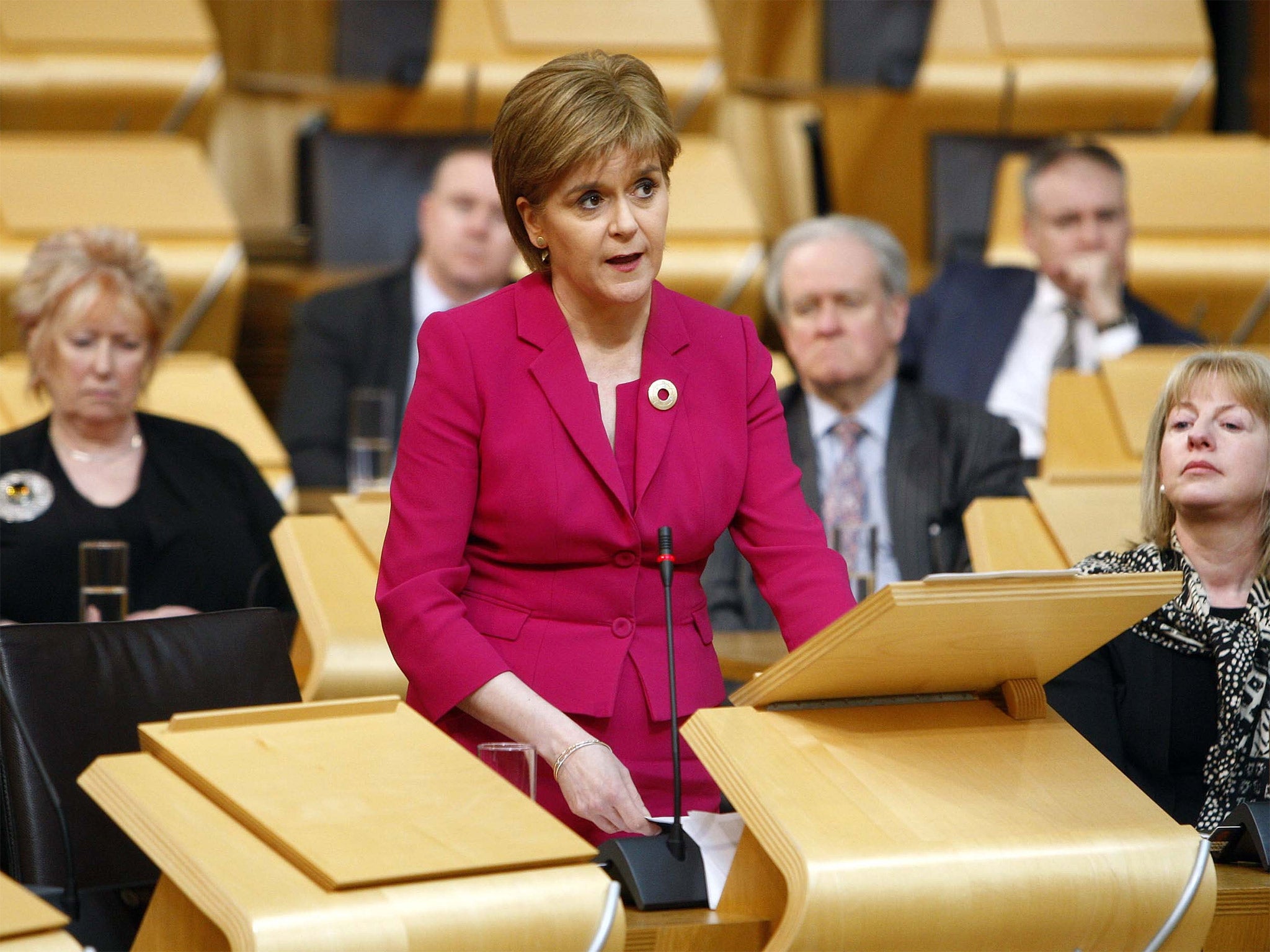Scotland's budget to be protected for first six years after devolution of new tax and welfare powers
Nicola Sturgeon announced the deal would not allow 'a single pound or even a penny' to be taken away from Holyrood

Your support helps us to tell the story
From reproductive rights to climate change to Big Tech, The Independent is on the ground when the story is developing. Whether it's investigating the financials of Elon Musk's pro-Trump PAC or producing our latest documentary, 'The A Word', which shines a light on the American women fighting for reproductive rights, we know how important it is to parse out the facts from the messaging.
At such a critical moment in US history, we need reporters on the ground. Your donation allows us to keep sending journalists to speak to both sides of the story.
The Independent is trusted by Americans across the entire political spectrum. And unlike many other quality news outlets, we choose not to lock Americans out of our reporting and analysis with paywalls. We believe quality journalism should be available to everyone, paid for by those who can afford it.
Your support makes all the difference.Scotland's budget will be protected for the first six years after the devolution of major new tax and welfare powers from Westminster, under a historic deal agreed by the Scottish and UK Governments following almost a year of negotiations.
The agreement, which was announced simultaneously in Edinburgh by Scotland's First Minister Nicola Sturgeon and in London by the Chancellor George Osborne, will require both governments to observe a transitional period lasting until March 2022, during which time the Scottish Parliament's budget cannot be cut.
With time running out to secure a deal, Ms Sturgeon had repeatedly accused the Treasury of trying to engineer a “systematic” drop in its funding to Scotland. Addressing MSPs, she said reaching the deal was “much harder work than it should have been” but that it would crucially not allow “a single pound or even a penny” to be taken away from Holyrood.
The agreement covers the financial arrangements underpinning the new powers contained in the Scotland Bill, which is due to come into force next year. The legislation, drawn up in the wake of recommendations by the Smith Commission, can now be scrutinised by the Scottish Parliament as MPs in Westminster have already given their approval.
The six-year transitional period will come to an end following the Westminster and Holyrood elections of 2020 and 2021, after which an independent review of the funding arrangements will take place and make recommendations to both governments. The full details of the agreement will be presented to MSPs by the end of the week, Ms Sturgeon said.
The First Minister had been under intense pressure to finalise a deal, which she eventually sealed during a phone conversation with Mr Osborne after 10 rounds of exhaustive talks between the Scottish and UK Governments. The negotiations also involved David Cameron and Scotland's Deputy First Minister, John Swinney.
“There has been give and take in these negotiations – we did not get everything we wanted,” Ms Sturgeon told MSPs. “But when these discussions began in June last year, [we] faced a proposal from the Treasury which would have delivered £7 billion of detriment to the Scottish budget over the next ten years. This deal will not allow a single pound, or even a penny, to be taken from the Scottish Government’s budget.”
Mr Osborne said the deal was fair to taxpayers both north and south of the border and would deliver “a stronger Scotland in a stronger UK”. He added: “This enables us to deliver on the vow we made to the Scottish people and delivers one of the most powerful devolved parliaments in the world and the economic and national security that comes from being part of the UK. This clears the way for the debate in Scotland to move on to how these tax and spending powers should be used.”
The agreement was welcomed by Scottish Labour, whose leader Kezia Dugdale said it marked a “historic moment” for the country. “Scottish politics will never be the same again thanks to these new powers. We have entered a new and exciting era of devolution,” she added.
Join our commenting forum
Join thought-provoking conversations, follow other Independent readers and see their replies
Comments